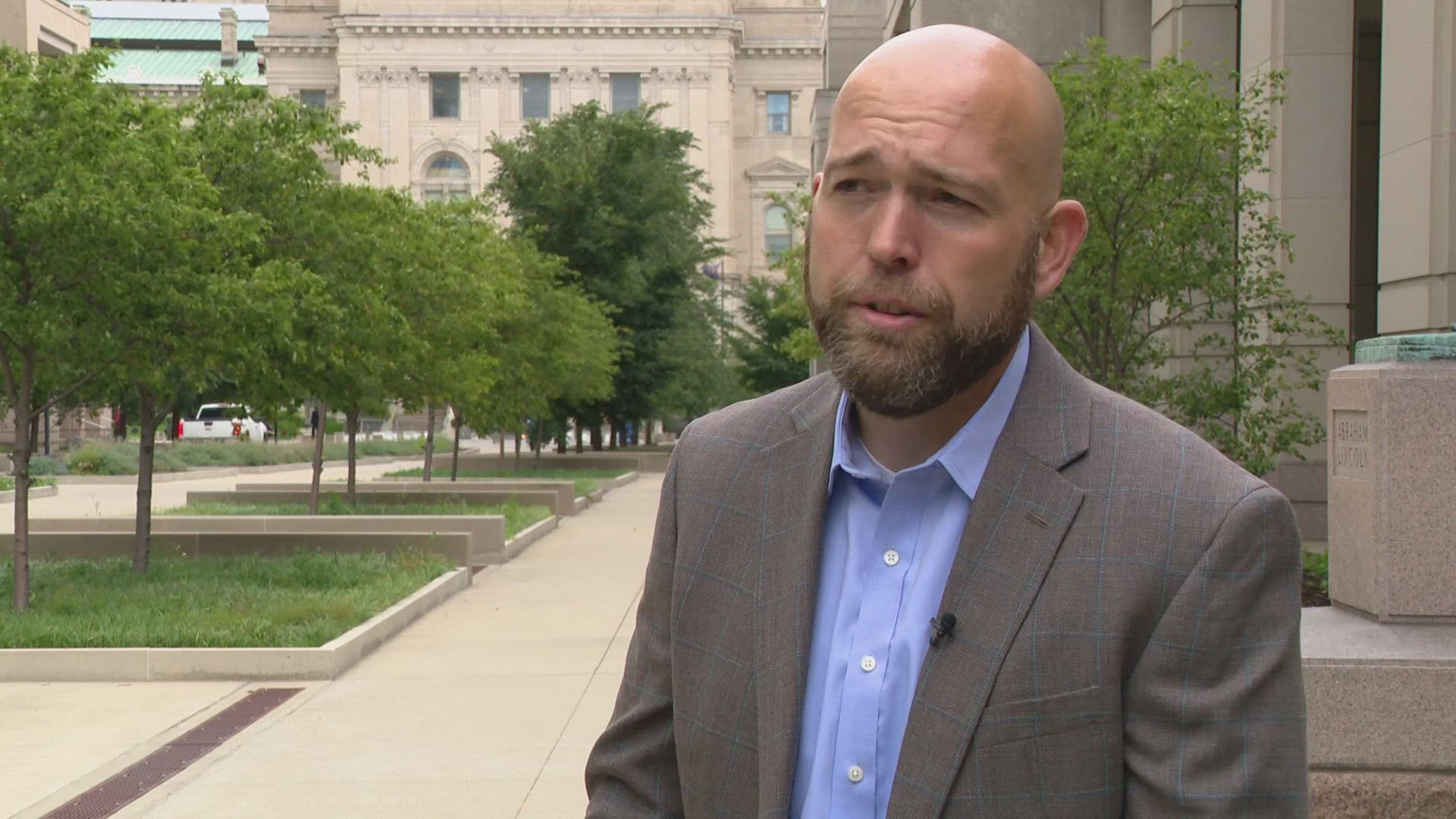INDIANAPOLIS — With just a week left to give feedback on proposed cuts to Medicaid reimbursement, families of children on the autism spectrum are sounding the alarm.
They're worried about losing access to therapy that's transforming young lives.
The autism diagnosis for RG Greene came at age 3. But his family found a lifeline in Applied Behavioral Analysis.
They say ABA therapy helped him thrive.
"Within the first few weeks of ABA therapy, we were just blown away by how much he was able to come along from where was from where he began," said RG's dad, Robb Greene. "Within a month-and-a-half, he was beginning to be verbal and started to use actual phrases that fit context of communication. Meltdowns started to decrease. He was able to socialize and I credit it with saving his life."
RG is also why dad became a state lawmaker, to advocate for families like his.
Rep. Robb Greene represents House District 47, covering parts of Shelby and Johnson counties. But now, Greene fears Hoosiers could lose access to care because of cuts to Indiana's Medicaid reimbursement rate.
"You know I've seen stats that about 6,200 families are going to be affected across the state," Greene said, "and so that's why I'm deeply concerned about this issue now."
Last week, the FSSA announced a proposed standard Medicaid reimbursement rate for ABA therapy statewide.
Providers say it's a cut from $100 an hour to about $55 an hour. Their reimbursements were slashed by half.
That has therapy centers that change kids' lives worried about the consequences to quality of care.
"I've seen amazing transformations for families from ABA," said Kari Sheward, vice president of behavior health and clinical services at Tangram in Indianapolis. "Once someone develops the means to communicate their wants and needs, you see these behavioral challenges reduced."
"It is profound," added Sam Criss, CEO of Tangram. "I mean it really is life-changing, not only for the client for their families. For them to see their child also make all these advances, it's priceless."
Garcia Wilburn, assistant professor with Indiana University's occupation therapy department, believes this type of therapy is just like medicine and should be made available through Medicaid benefits.
"As a director of therapy who spent two years working in an autism center, I am deeply disappointed in this FSSA proposal to cut families' ability to provide this sound and proven therapy for their children with autism," Wilburn said. "Decades have shown that ABA therapy is effective in improving quality of life for people with autism. Anything but sufficient reimbursement is harmful."


But providers say the proposed cuts could put some clinics out of business.
"People wouldn't be able to get that quick access. If there are wait lists now. they would grow exponentially and we don't want that. We want people to get services as quickly as possible," Sheward said. "We just want to be part of that conversation so that families can still access services."
It's why dozens of families sent a letter to Indiana Gov. Eric Holcomb last week, asking for him to step in and slow the decision making process on the setting of rates.
FSSA says it will take feedback on the proposal through Tuesday, Aug. 22.
"We asked Gov. Holcomb to step in here with FSSA and the Office of Medicaid Planning and Policy to slow this process down, to work with providers, wait until the legislative session, if necessary," Greene said.
13News asked Holcomb about their request to slow the process.
"Slow is I think not fair for anyone," the governor responded. "This has been going on for months and will continue to for months and so we'll make sure we get it right. It is absolutely appropriate and I would say long overdue, that we have some standards set."
FSSA says ABA expenses have increased each year by more than 50%. The state says that's just not sustainable.
Families just hope the cuts don't sacrifice care for kids.
"Let's wait until next session where we can have a conversation about this and work with the providers to find a reimbursement rate that works for all," Greene said, "because the last thing we need is for centers to shut down or to lose access to care."
The FSSA says it will present a plan to the state budget committee by October and implement new Medicaid reimbursement rates by January.
To share your feedback, you can email INabatherapy@mslc.com.
To learn more about the proposal, click here.

